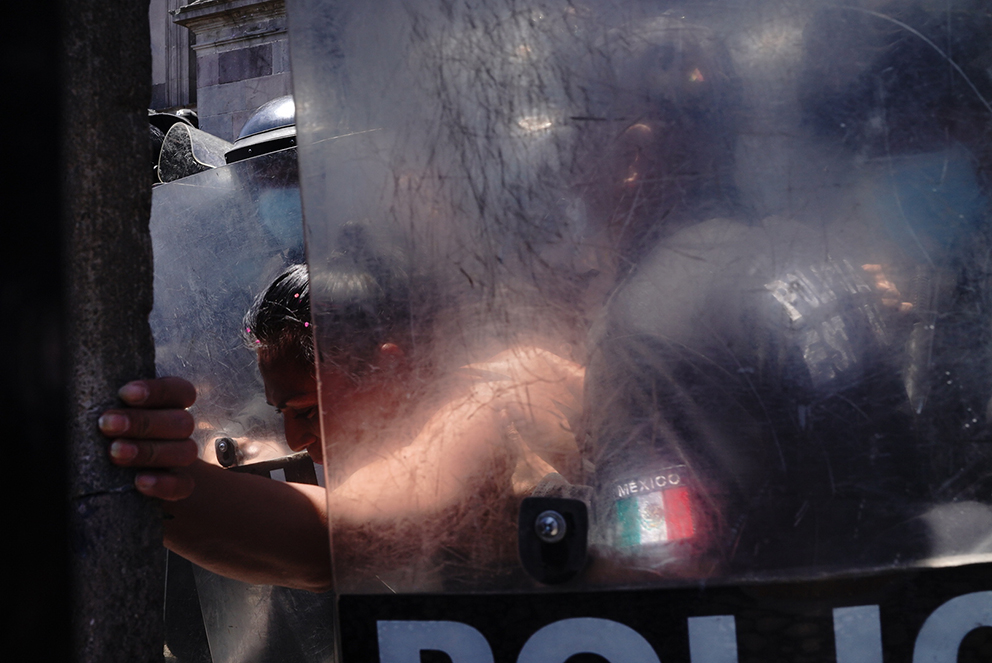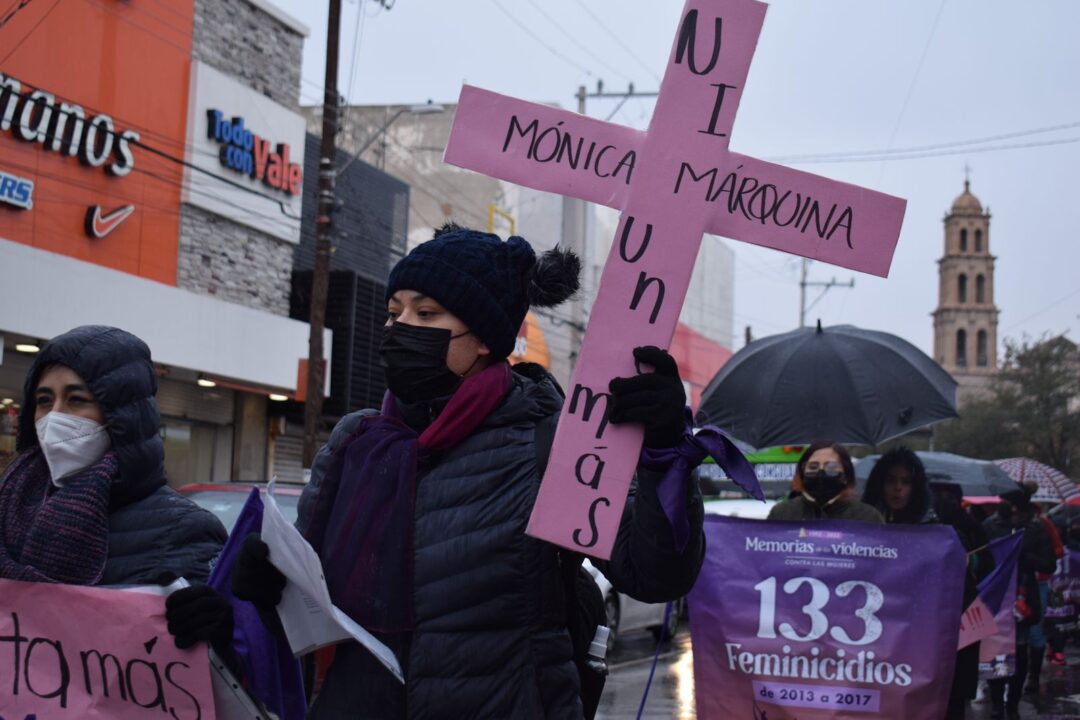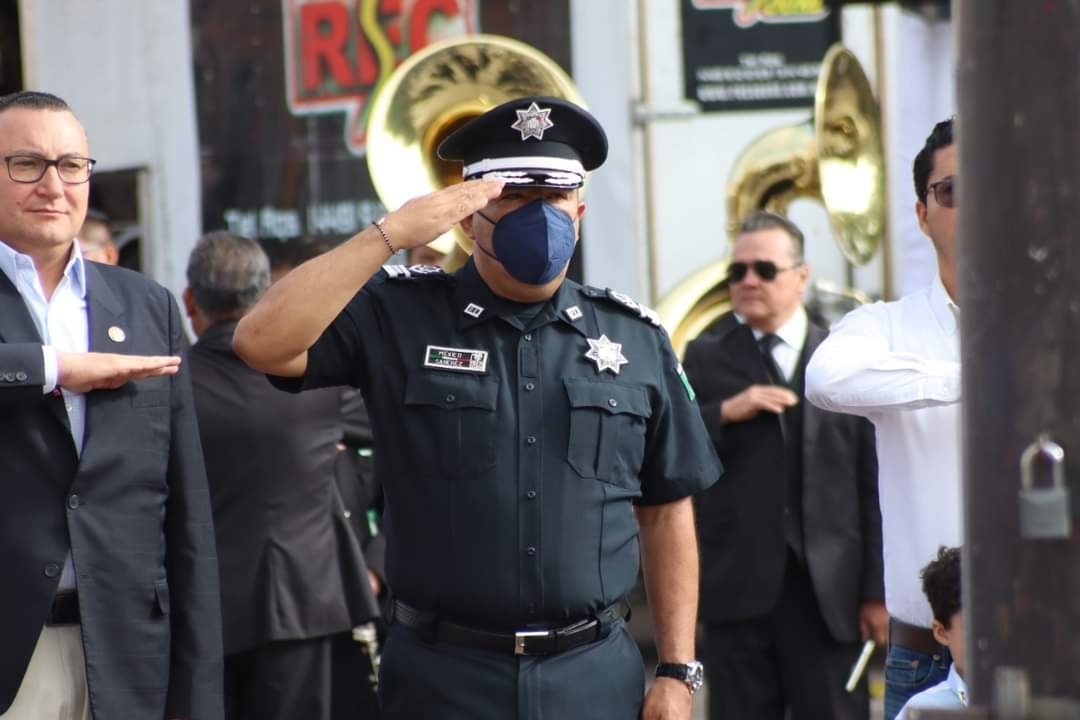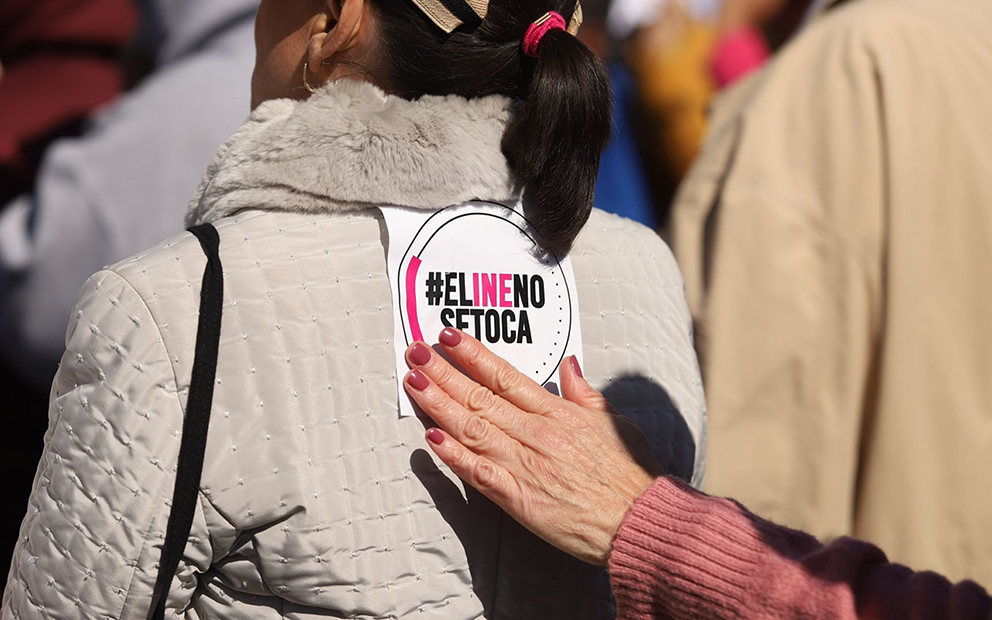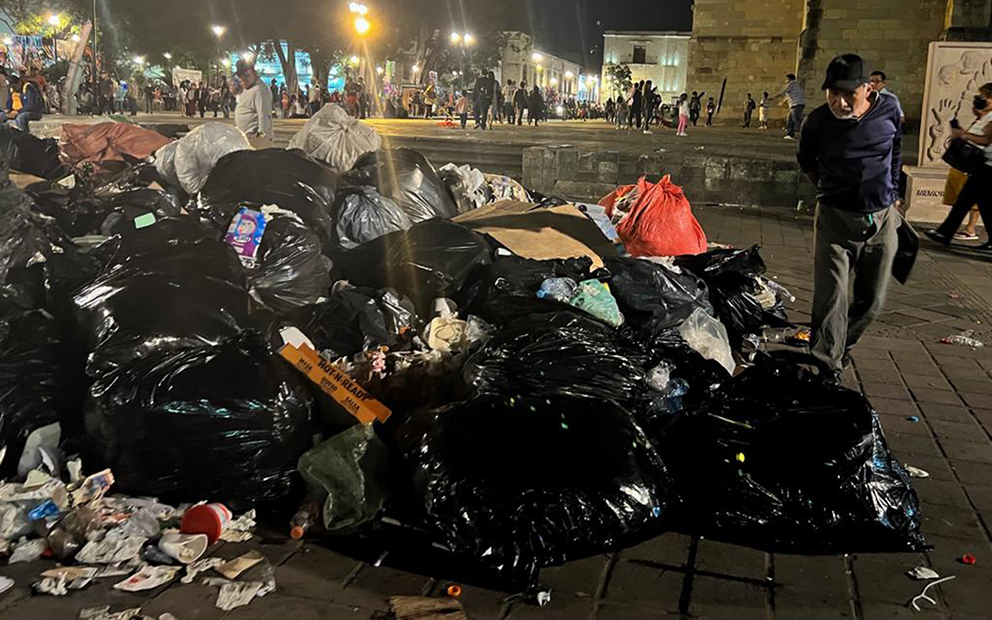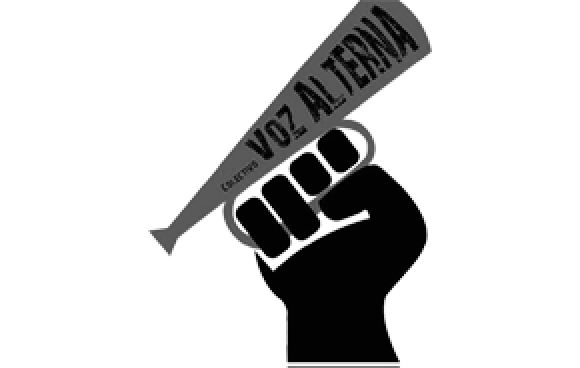Activists in Mexico State expected a step forward on marriage equaity. Instead, they were violently beaten by police.
Text and photos by Paola Martínez, originally published May 19, 2022.
Translated by Dawn Marie Paley for Pie de Página in English.
TOLUCA— “Once again they’ve shown that they think we’re second class,” said Tanya Vázquez, the president of the Trans Women collective, into the megaphone after the cancellation of the ordinary session of the LXI legislature, which was expected to prepare a final document for a vote on marriage equality legislation.
Moments earlier, together with activists from other collectives and journalists, Vázquez was surrounded by members of the state police who were protecting Toluca’s cathedral. Inside was a televised mass with Monseñor Raúl Gómez González, the new archbishop of Toluca. Among those who attended was governor Alfredo del Mazo, along with local politicians and some legislators.
Beaten by police, activist Esmeralda Nava and three journalists—Ximena García, Claudia Rodriguez y Abraham Rojas—were injured. Rojas ended up with a fractured leg and was attended by an ambulance.
Outside the legislature there was a fetid smell as downtown sewers carryied the liquid waste of Toluca, which just turned 500 years old.
There weren’t more than 30 activists at the demonstration. They came from collectives like Redefine Edomex, Network of Diverse Defenders, Out of the Closet Trans Women, Chicoloapan Collective, Diversity Toluca, Mexico State Defenders Network and the México State Network of Defenders of Sexual Diversity. More than 100 police closed streets in order to prevent access to the Cathedral’s main entrance.
Previously, members of the LGBT collective had worked with allied congresspeople from Morena, Citizen Movement (MC) and the Institutional Revolutionary Party (PRI) for weeks in order to present three initiatives for marriage equality. During that session it was agreed that the three proposals would be combined into a single, final proposal on May 12, and voted upon during an extraordinary period in the months of June or July. That’s what the historic possibility of being the 27th state to legislate marriage equality looked like, after 17 years of struggle.
“A final proposal is very important because it means that the proposal has already been discussed and analyzed, and it represents 80 per cent of the work towards it becoming law,” said Hugo Eduardo, spokesperson for Redefine Edomex in a phone call before the session was canceled.
But once again, the hearing was canceled at the last minute. Allied congress members Anaís Burgos and Paola Jiménez, who helped to push the initiative forward, didn’t respond to questions.
Leonardo Espinoza, a representative of the EdoMex Diverse Defenders Network, said during the protest that none of the allied congress people got in touch with them after the session was canceled. When they made their statement to the media, they denounced the silence of the representatives as akin to complicity in the discrimination that queer and trans people suffer on a daily basis in México State: they are not allowed to marry unless they get a writ of protection, a process that is much longer and more expensive than it would be for a cisgendered citizen.
Regardless of the repression, the activists decided to return to the cathedral. They walked arm in arm and yelled slogans like “Like it or not, we’re going to get married.” Giovanna and Tanya, from the Trans Women collective, tried to scale the fence around the cathedral. Giovanna was thrown to the ground by more than 10 state police.
“They even broke her sandal,” yelled her compañeras, who continued to protest. Tanya hung two flags on the iron fence: the rainbow flag, representative of the LGBTTIQ+ community; and the flag with pink, blue and white stripes, which represents the trans community. And then they waited for the mass to finish.
The legislature published the following commiunique on May 12th. “During the first working meeting of the Due Diligence and Administration of Justice, Governance, Constitutional Matters and Gender Equality committees to analyze this issue, 15 local representatives of Morena, the PRD and the PRI spoke in favor of marriage equality, and said it is a human rights issue and part of the fight against discrimination, which has already been approved in 26 state congresses in México, and which is backed up by Supreme Court rulings.”
As this story went to press, the allied congress people, had yet to respond to messages from the LGBT collectives, according to Leo Espinoza, of the EdoMex Toluca Network of Diverse Defenders.
After reading the statement, the activists linked arms and attempted to return to the front of the cathedral, where they were again detained by police. They were blocked from moving forward, and following a verbal exchange in which activists demanded police allow access to the front of the church by way of the plaza.
That’s where they waited for the church dignitaries to leave the mass. As the archbishop of Toluca left by car, activists ran and shouted slogans. Again, activist Tanya Vázquez was attacked. The archbishop’s car ran over one of her feet, and she required medical treatment from an ambulance.
Journalist Abraham Rojas published a video message from an ambulance where he was treated for a fracture to his left knee.
Following the actions, the México State Human Rights Commission announced it had opened two investigations: one on the violation of the right to protest freely, and another for the violation of freedom of the press.
Click here to sign up for Pie de Página’s bi-weekly English newsletter.
Ayúdanos a sostener un periodismo ético y responsable, que sirva para construir mejores sociedades. Patrocina una historia y forma parte de nuestra comunidad.
Dona

